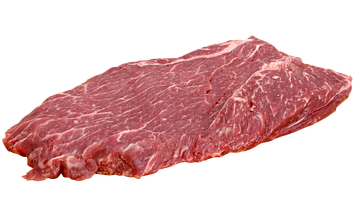Approval of U.S.-EU Beef Access Agreement
The dispute between the European Union and the United States over the import of hormone-produced American beef, which has been going on for more than three decades, has been finally settled.

After the European Parliament approved the agreement as the last co-legislator at the end of last week in Strasbourg, the agreement with the revised terms may come into force on January 1, 2020.
Initially, the quota for US beef will be 18,500 tons of non-hormonal products per year. Then this quota will be gradually increased to 35,000 tons over seven years. Initially, Washington was promised a quota of 45,000 tons per year.
However, according to the rules of the World Trade Organization (WTO), this quota cannot be limited to beef from the United States, so exporting countries such as Australia, as well as Uruguay and Argentina, can also use this access to the European market. Three countries will now receive the remaining difference in the form of duty-free quotas for free trade for the supply of beef. There will be no clear distribution of the remaining quota between these countries.
According to Chairman of the EU Trade Committee Bernd Lange, the agreement with the United States allows us to import "high-quality and hormone-free American beef." However, Lange emphasized that the total number of imported beef will not increase.
However, France sharply criticized the agreement with the United States. France criticized the EU’s inconsistent trade policy, which allowed the import of products manufactured to lower standards to the detriment of domestic producers. French breeders emphasized that the agreements with Washington do not contain bans or restrictions on the use of meat and bone meal in animal feed. However, this practice is now widespread in the United States.
The Coordination Rurale Agricultural Association (CR) has also emphasized diverging quality standards. Although the supplied beef “is guaranteed to be free of hormones,” it will come from “feedlots,” where there will be an average of 30,000 fattening sites and antibiotics that will significantly lower the quality of the meat produced. CR also warned that countries whose import quotas would be reduced in favor of the United States may demand compensation. This is especially important against the background of an agreement with the Mercosur states. Moreover, in connection with the US reciprocal tariffs against French wines and cheese, Brussels had no reason to give in to the Americans, French manufacturers say.
SOURCE: meatinfo